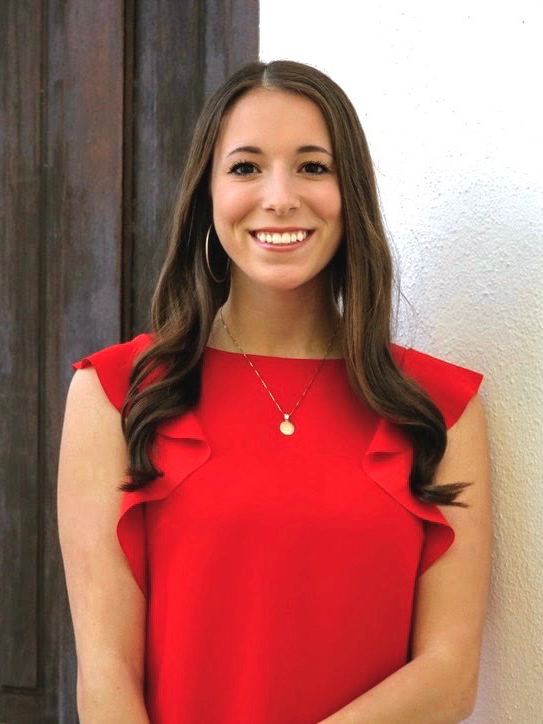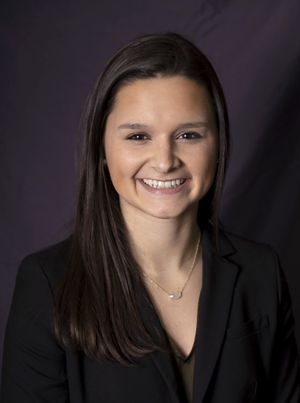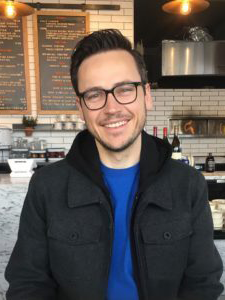MGC trainees share stories of resilience, growth in the transition to telehealth
by Emma Mattson

“Last February, when I was discussing my elective rotation, I said, ‘The one thing I’m really not that interested in is doing telemedicine,’” recalls Master of Genetic Counseling student Carly Smith.
“And then the world said, ‘Joke’s on you. You’re going to do telemedicine for six months.’”
As COVID-19 swept through Tennessee, Smith and other second-year MGC trainees faced a sudden transition to telehealth this spring. The MGC Class of 2021 was already marked for the history books as the inaugural MGC class at Vanderbilt, but this year brought extra evidence of their resilience and adaptability in a rapidly changing healthcare landscape.
Smith, now completing an elective rotation remotely with St. Jude Children’s Research Hospital, reports that the switch to telemedicine actually increased her comfort with counseling overall.
“Learning how to do telemedicine builds a really unique skill set in comparison to doing in-person sessions,” Smith said. “You have to ask more questions about how someone’s feeling or what questions do they have.”

Second-year MGC student Gianna Petrelli describes a similar experience.
“There are some genetic counselors that pretty much work remotely just to expand access for hospitals that don’t have genetic counselors,” Petrelli said. “I thought that was interesting and a great way to expand care, but I always [thought] building rapport with patients would be so hard to do over a telehealth session.”
“Then, all of a sudden, that was what we had to do,” Petrelli said.
Per Petrelli, traditional strategies for emotional connection fly out the window when it comes to telemedicine. Even in-person sessions look different, since counselors and patients maintain safe social distance and wear masks.
But that doesn’t mean meaningful patient-provider encounters are impossible.
“For a while, we had to figure out how to do that from the neck up, pretty much, on a computer screen,” Petrelli said. “Now that we’re in person, you have to figure out how to do that without seeing someone’s facial expression, just their eyes.”
Creativity in the face of the unexpected— that’s just one example of how these trainees are staying on the cutting edge of their field.
Leading in the Clinic
This year has seen the Class of 2021 take on new responsibilities in the clinic as well.

While traditional genetic counseling programs send students through one round of ten-week rotations, Vanderbilt’s MGC program includes two rounds of five-week rotations. As a trainee’s capabilities grow over time, the second round offers the opportunity to display expertise in a setting that’s already familiar from the first round.
That’s exactly what has happened for second-year trainee Erin Griffin, who said he feels more comfortable writing clinic notes, calling out results, and taking on trickier cases this semester.
“It’s nice because you feel like you have a handle on what that clinic is,” Griffin said. “You’re able to step up to more responsibility and more complex roles.”
According to Smith, the unique clinical schedule prepares trainees well for board exams and career prospects, too. Spending time in each rotation twice before graduation ensures the specifics of that clinic are fresh in your mind, no matter what work setting you choose.
Passing the Torch
Even as the second-year trainees take on more responsibility in clinic, they’re also conducting novel research for their own project as part of the curriculum. Some trainees run survey studies to address a pressing question in genetic counseling. Others analyze data from VUMC’s synthetic derivative, an online database of de-personalized medical data from over 2 million individuals.
Griffin, for example, is currently recruiting subjects for a survey study of pregnant women who are offered cell-free DNA screening. The results could help genetic counselors better understand how pregnant women choose to opt in or out of DNA screening.
For her part, Smith is partnering with VUMC’s Department of Obstetrics and Gynecology to study the factors that discourage men from following up for genetic testing after their female partner has completed expanded carrier screening.
Research like this prepares MGC trainees to contribute to a rapidly evolving field from the get-go.
And the trainees are giving back locally as well. In fact, their feedback has been instrumental for preparing the MGC program to welcome the next cohort of students, the Class of 2022.
“We’ve already seen differences in the new year of students,” Griffin said. “What their classes look like and what their experience looks like has already been changed and shaped by feedback that we’ve given.”
Griffin said he was drawn to Vanderbilt’s program because of this very opportunity to set the tone for an innovative program.
“[Faculty] do such a great job of cultivating a culture that’s comfortable with feedback,” Petrelli said. “It is cool to see how much of our feedback they really implemented into that first year.”
Read more about the unique structure of Vanderbilt’s Master of Genetic Counseling program and meet the members of the newest MGC cohort.